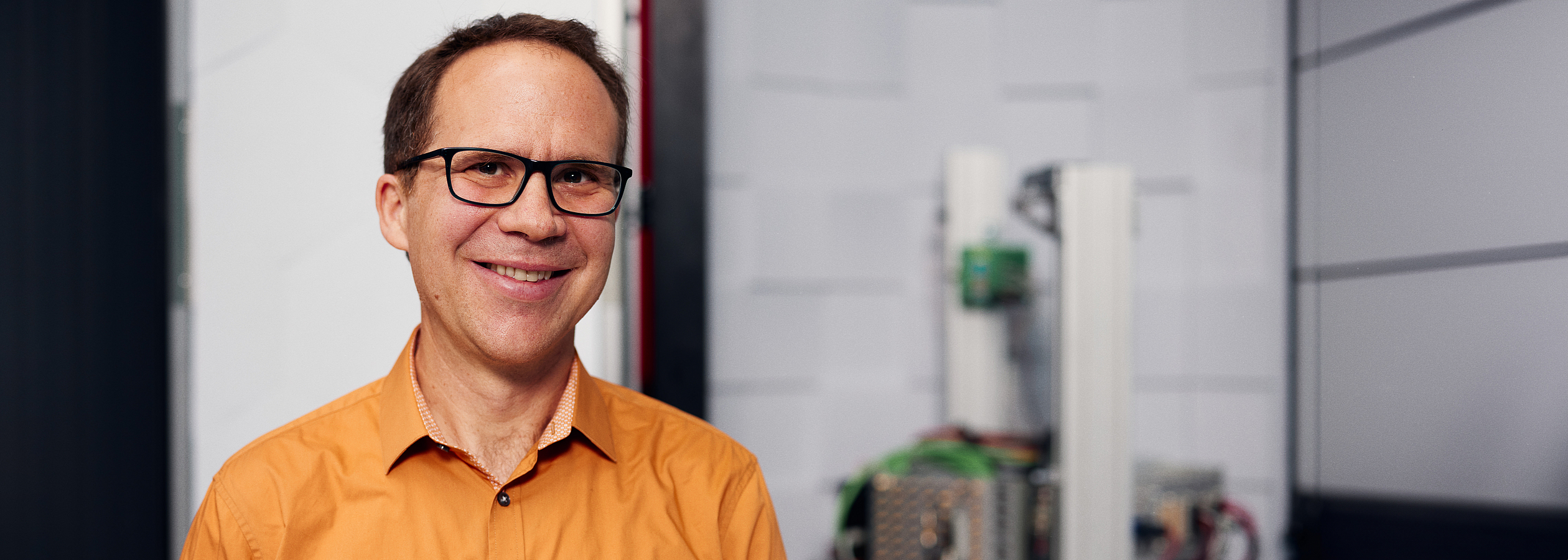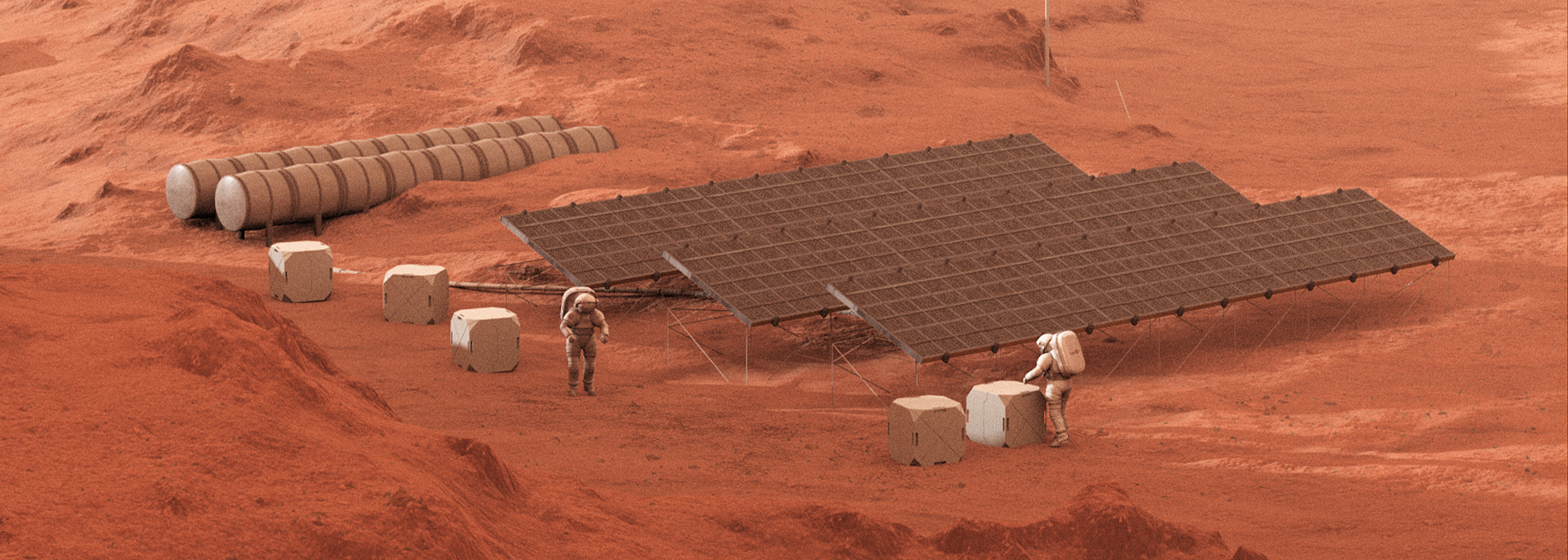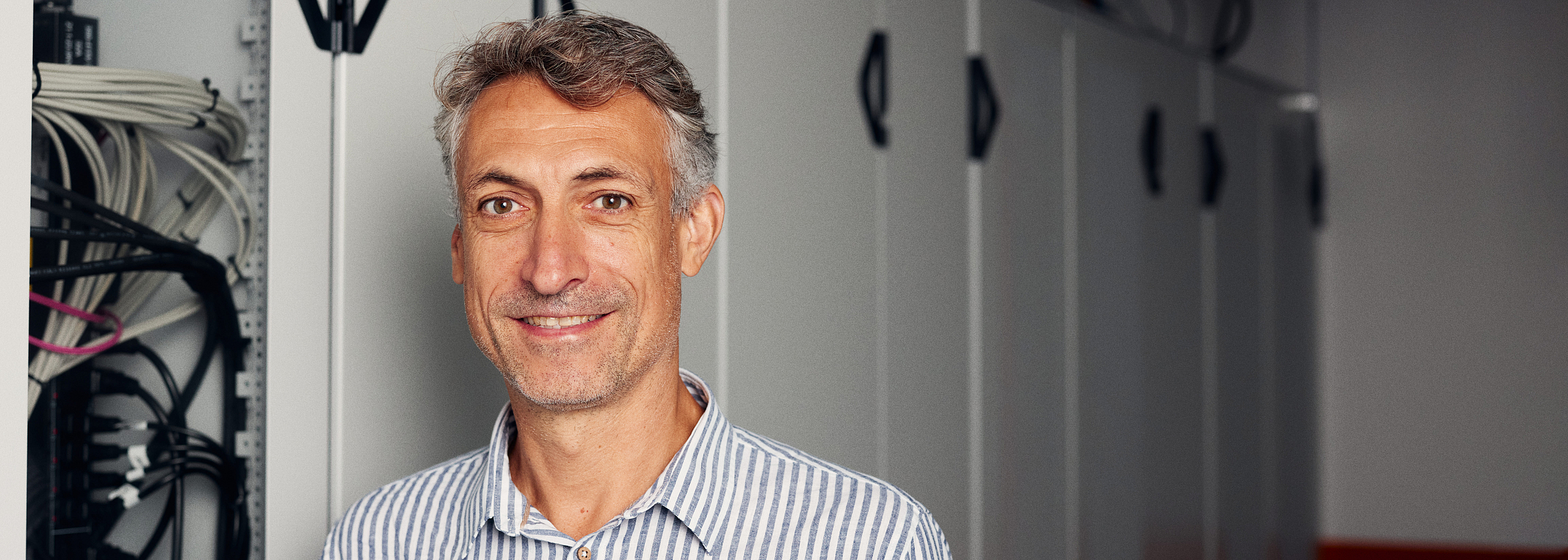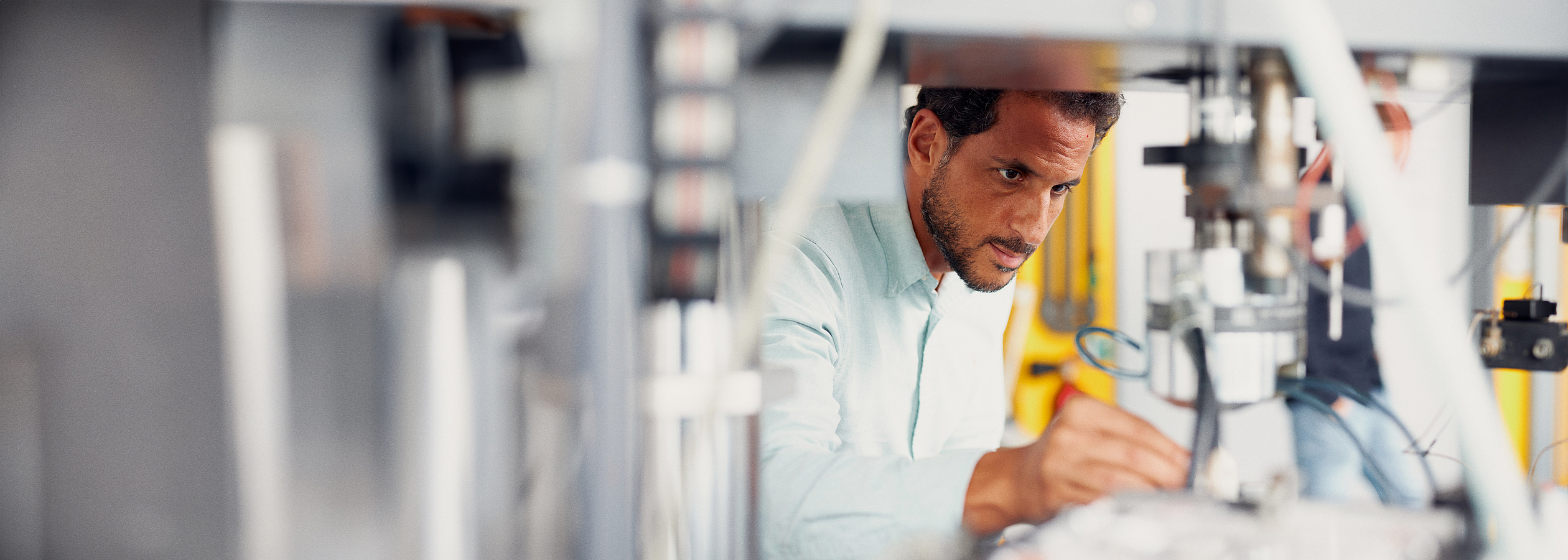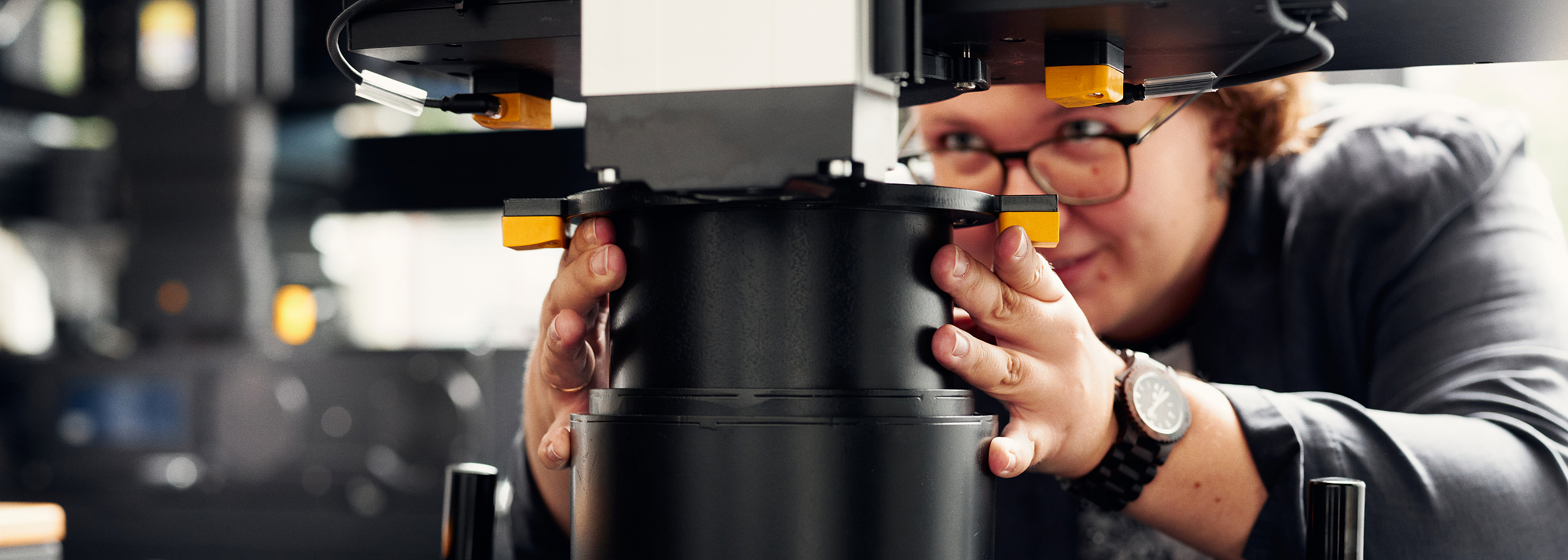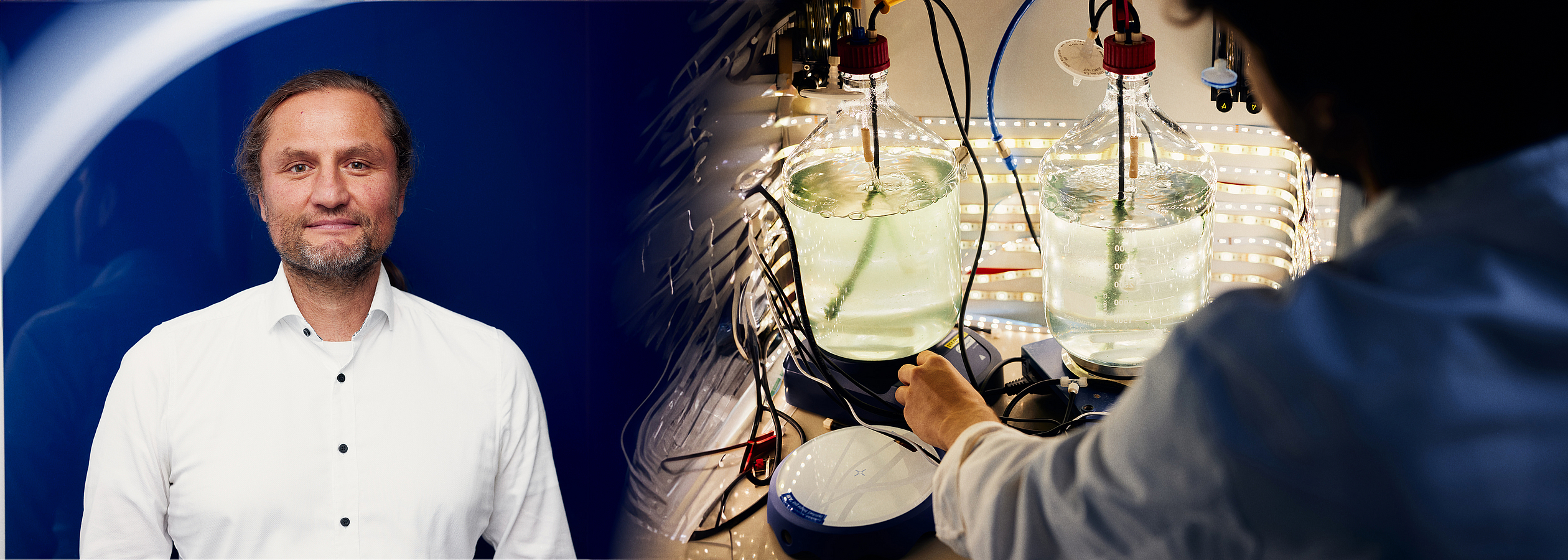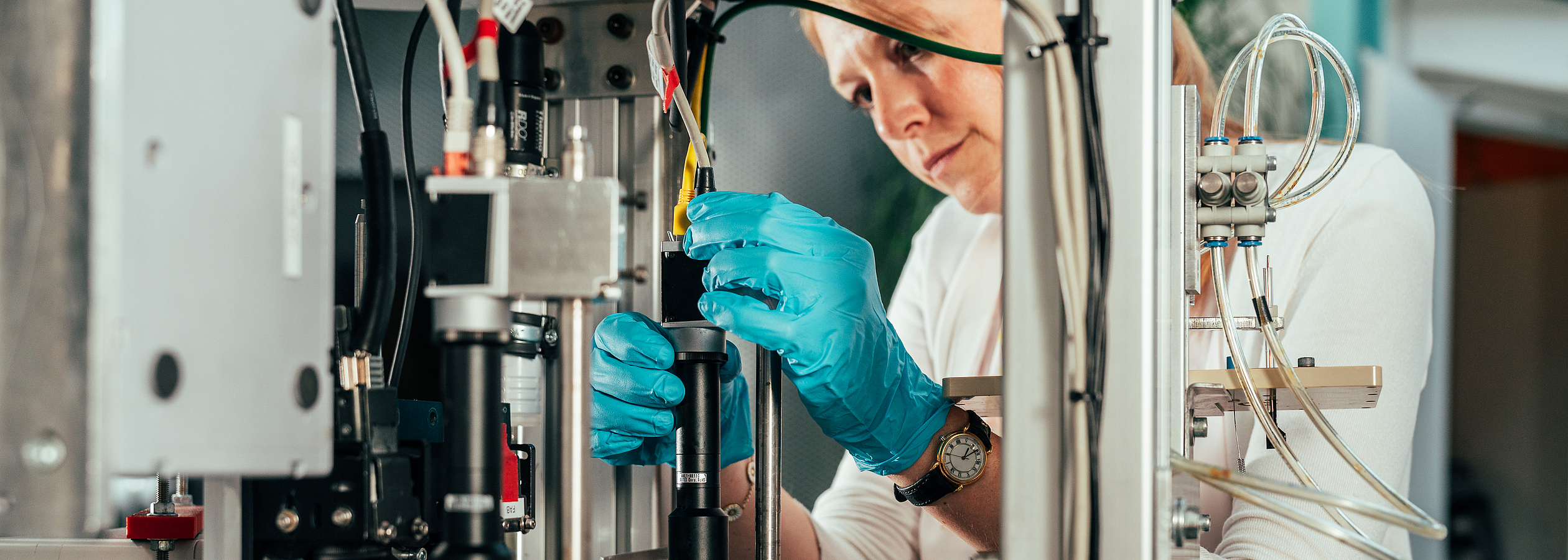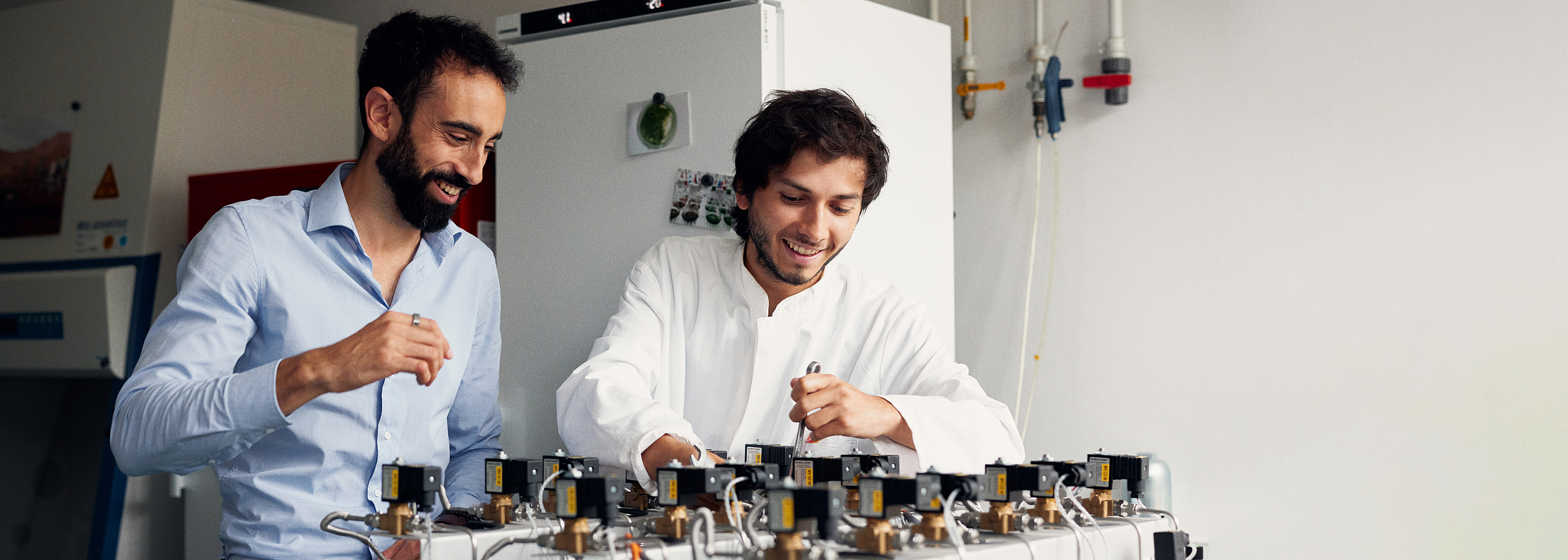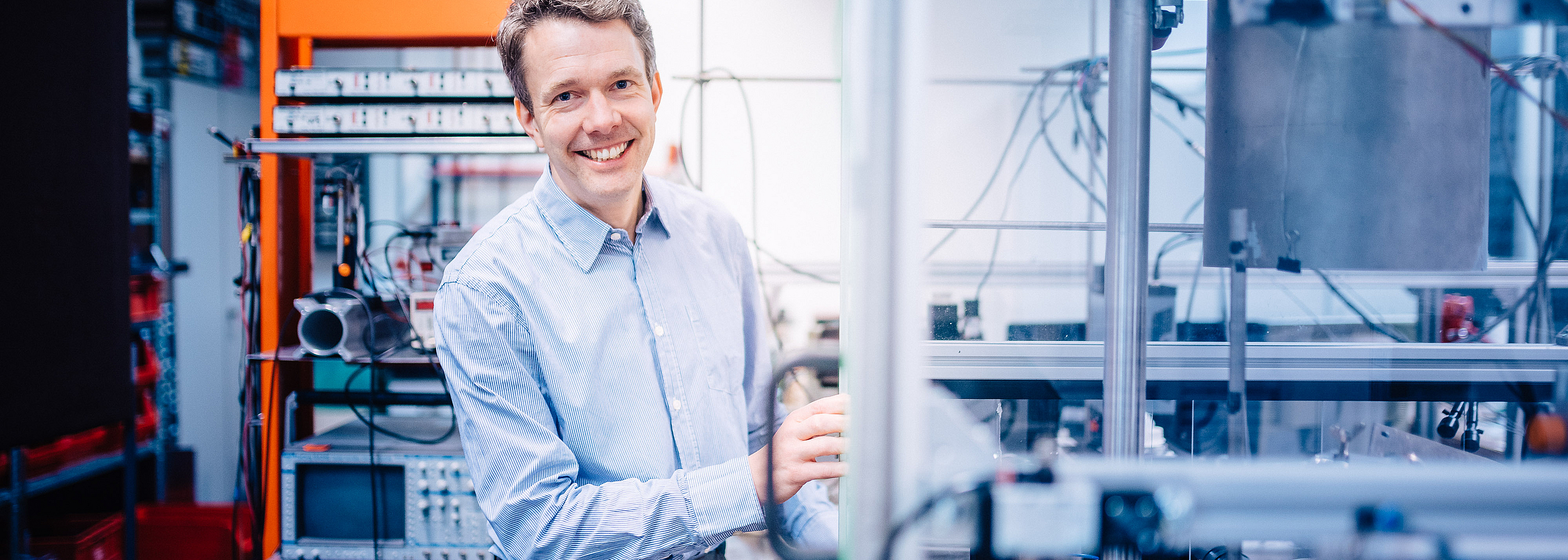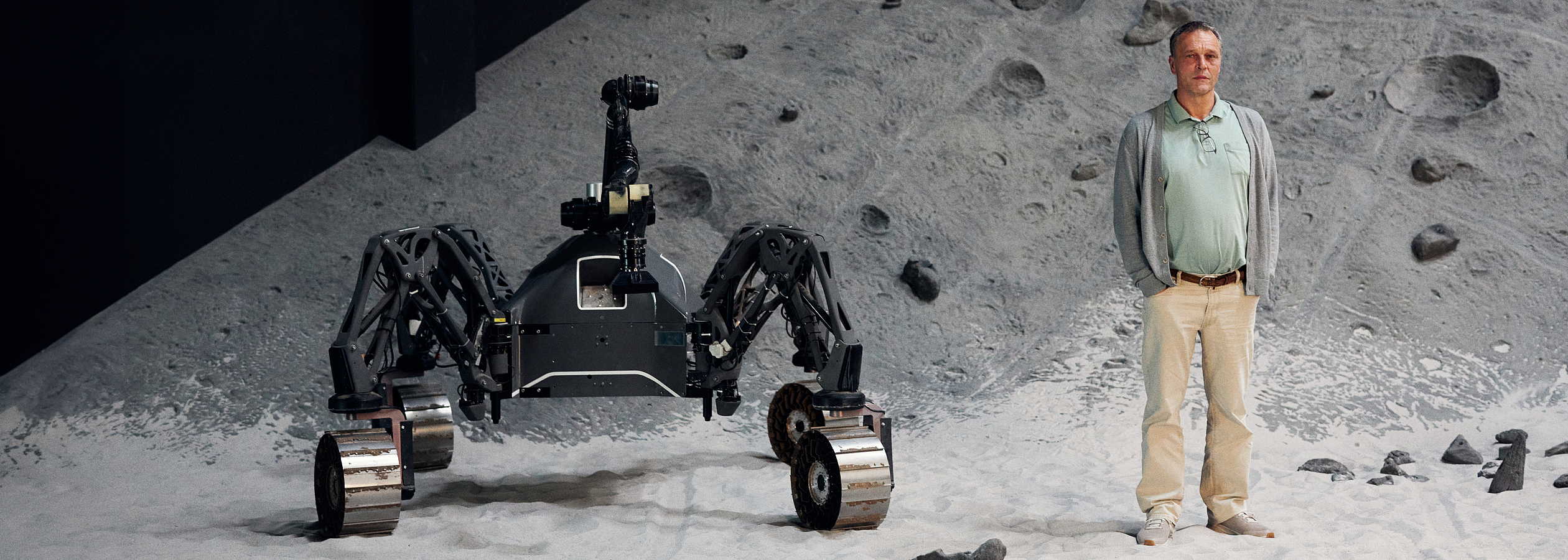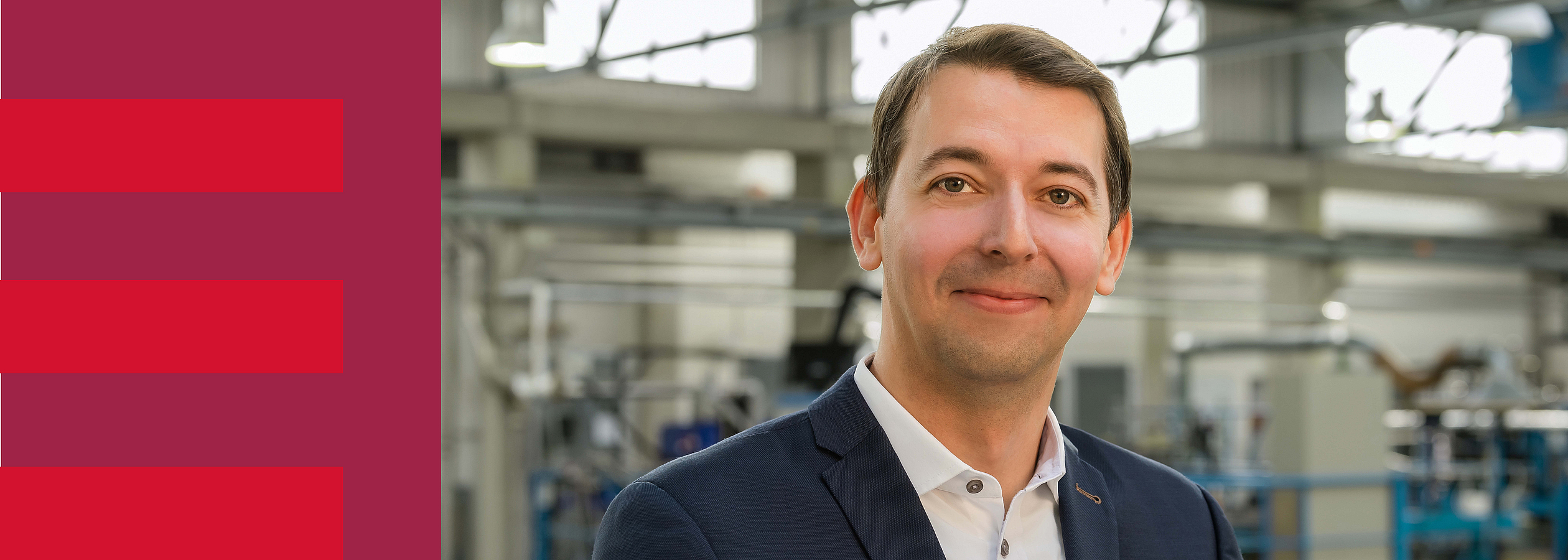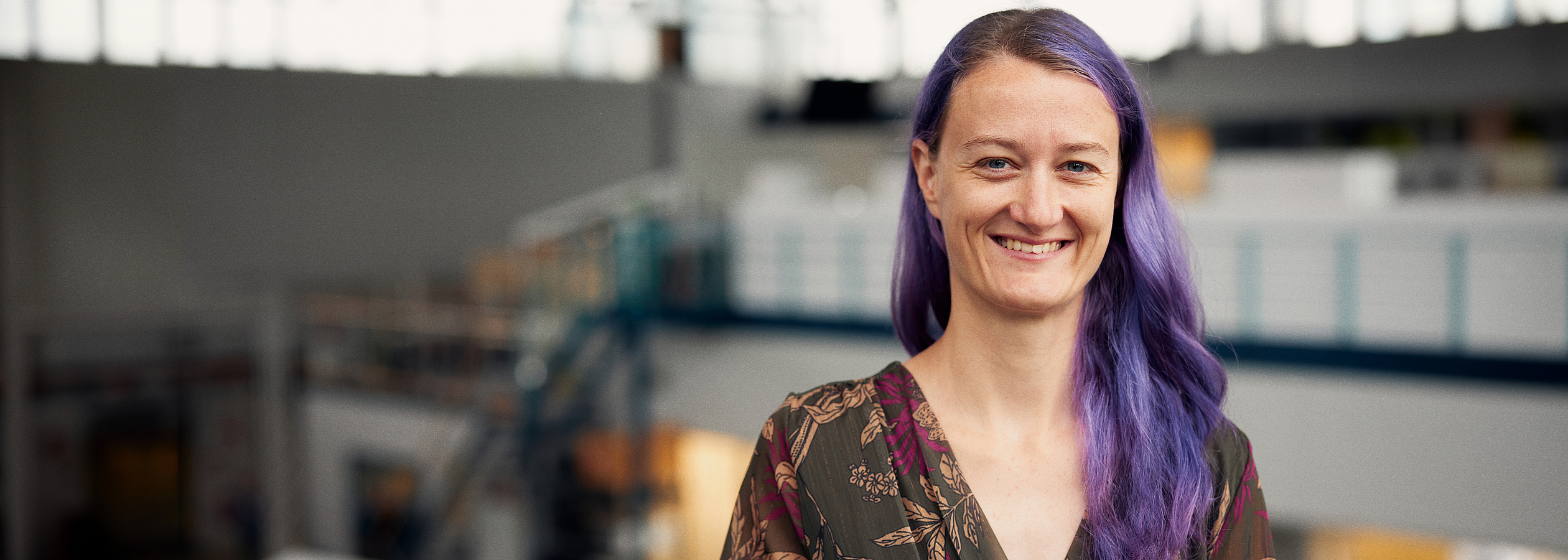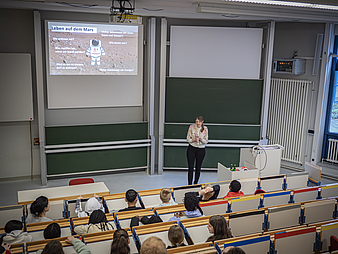
Humans on Mars Initiative
Humans on Mars
Wir untersuchen Wege zu einer nachhaltigen, menschlichen Erkundung des Mars in sieben vom Land Bremen geförderten Projekten. Die Projekte konzentrieren sich auf menschliche Aspekte, wie die Interaktion und Kommunikation zwischen Menschen und gemischten Mensch-Maschine-Teams, auf Habitate und Lebenserhaltungssysteme sowie auf die verantwortungsvolle Gewinnung lokaler Ressourcen für die In-situ-Produktion von Verbrauchsmaterialien und Ersatzteilen.
mehr
News and activities

© ZARM, Universität Bremen
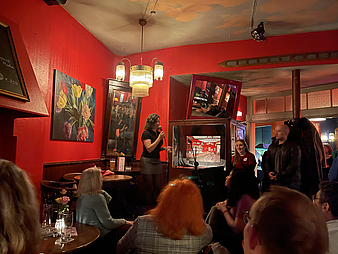
© Science goes Public
Was atmen Astronaut:innen?

© Patrick Pollmeier, Universität Bremen
„Interdisziplinarität ist unser Markenzeichen“
Publication highlights

© 2025, The Authors, licensed under CC BY-NC-ND 4.0
MAPEX Research Highlights|
Anaerobic digestion of cyanobacterial biomass for plant fertilizer production on Mars

© The Authors, Published by American Chemical Society
MAPEX Research Highlights|
Impact of Gas Bubble Evolution Dynamics on Electrochemical Reaction Overpotentials in Water Electrolyser Systems

© Joris Wegner, Universität Bremen

